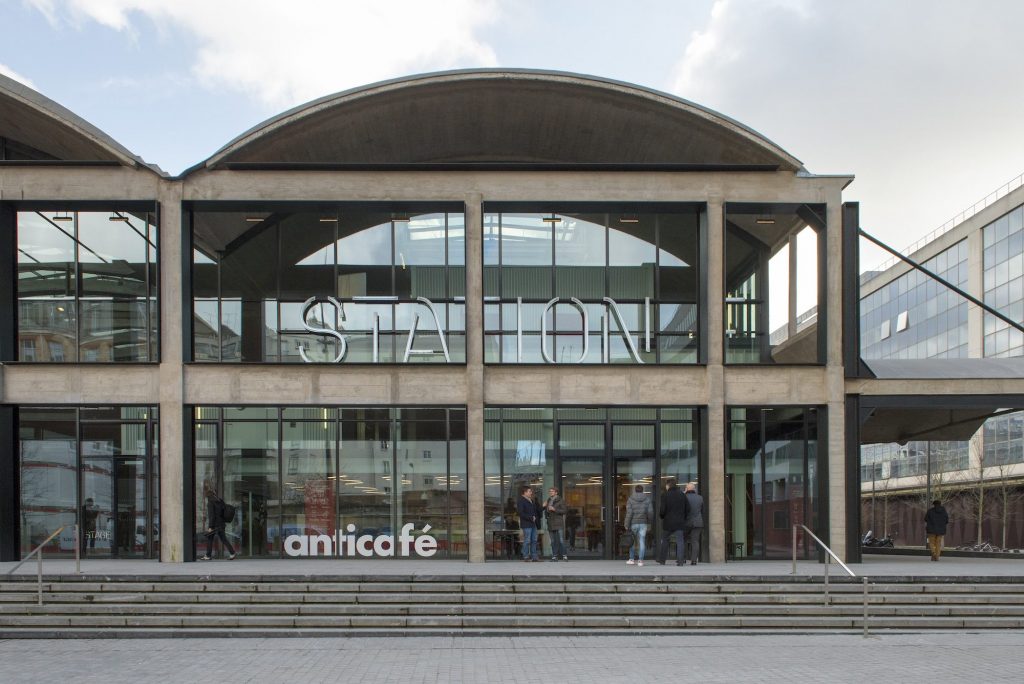Microsoft’s Digital Difference in Retail event took place today at the world’s largest startup facility, Station F in Paris, France. The technology company invited various industry experts to take to the stage and share their thoughts on how technology continues to play a vital role in the retail space. Of the impressive lineup, which ranged from startup founders to the Director of research and development for YOOX Net-A-Porter Group, three people stood out for me. They were Katharina Vandamme-Etbesfeld, founder of BECOCO, Stephane Lannuzel, Chief Digital Officer of Operation for L’oreal and Natasha Franck, founder and CEO of EON group holdings inc.
Microsoft: Lets Talk About the Evolution of Retail Tech
Talking to an audience that came from the four corners of the globe, Katharina, Stephane and Natasha shared the kind of insights that had the invited guests leaning in closer to the stage to hear more. First on the boards was Katharina. She was part of the startup panel that included, Maryll Metier of Data & Data, Shana Aiach of Heuritech, Louis de Cointet of SouthPigalle and Nina Lund of Microsoft moderated it. Discussing the latest advances in the cloud, AI and mixed reality, the startup panel’s conversation explored how these technologies are transforming both the physical and online retail. On the topic, Katharina explained that when it comes to retail, specifically online, that she wanted to solve the problem of returns. “Returns are not only a big problem for consumers but also retailers,” she said. Adding, “In Germany, 70% of clothes bought online are returned.” Pausing to allow that fact to sink in she then said, “That is why we developed an interface to tackle this problem.”

BECOCO is a virtual fashion styling platform designed to help consumers shop based on their body shape and unique natural skin tone. Looking to reduce the number of online clothing returns for retailers, BECOCO offers solutions that marry technology with deep fashion knowledge and creative expertise. The CFE alumni startup provides a bespoke and straightforward solution, tailored to every retailer.
Next up was Stephane Lannuzel. He gave the audience insights into hyper-personalisation and how brands need to focus differently and optimise their management to ensure that their consumers receive high quality and bespoke services. He confided: “Our (L’oreal) consumers have changed more in the last three years than they have in the last 30 years.” Continuing, “This is why we are trying to combine all the technologies to cope with this new level of consumers.”

“People in organisations always resist technology, but you have to persist. This is why we first started to by using 3D printing for personal projects, so people get used to using the technology,” shared Stephane. His reasoning made sense. People do need to experiment with technology and learn how it could work for them; it is the only way they will be comfortable with it. “A few years ago the luxury industry was opposed to technology, and now the two are actually complementary.” Smiling at the audience, he added, ” You have to be resilient with technology”.
“People in organisations always resist technology, but you have to persist. This is why we first started to by using 3D printing for personal projects, so people get used to using the technology.”
– Stephane Lannuzel
Natasha Franck’s keynote was about rethinking sustainability. She asked the question, how can digital identity power transparency, sustainability and circular economy across the entire value chain? It was a question that got our attention. Taking a pause, she said: “Digital identity allows us to build a relationship with the consumer and with the life cycle of the product until its end of life. The RFID that we all know would not look nice attached to a blouse, so we created the first RFID tag in the shape of a thread.” With those words, she held up what looked a like a piece of thread. I was amazed that this piece of hardware could be the solution to one of the three barriers that Natasha explained prevents digitisation. The other two were software and interoperability. She questioned how can we create and store digital identity? and followed by the question of how do you create standardisation to ensure systems throughout the value chain can communicate?
“Digital ID can assist with the circular economy by helping with the product in its next life. It is a technology that is fundamentally changing the future of fashion” -Natasha Franck of EON#MicrosoftRetailStories #Sustainability #CircularEconomy #DigitalIdentity pic.twitter.com/p8yZthjCfx
— Muchaneta K (@FashNerdEditor) 5 December 2018
During her talk, Natasha also stressed the importance of a ‘product birth certificate’. “A product passport”, Natasha explained, “will help with the circular economy, and help with the product in its next life- fundamentally changing the future of fashion.” Her observations made a lot of sense. A digital id has the potential to act as a bridge between systems that are connected via data and knowledge.
Besides Natasha, Stephane and Katharina, those who also took to stage were Matthew Drinkwater of Fashion Innovation Agency who talked about immersive technologies and Gabriele Tazzari of Yoox Net-a-Porter who shined a light on different approaches to China. Not forgetting David Sadigh of Digital Luxury Group who shared his knowledge on how digital in China is reshaping the future of luxury retail and Edoardo Zegna of Ermenegildo Zegna who questioned: “why do we still speak about digital”.
ALSO READ: Exploring The Future of Digital Shopping And How It’s Shaping The Way We Shop
As the rather intimate event, came to an end, I was left feeling buzzy from all the information that was shared. All in all, it was a successful get together of industry movers and shakers who I was happy to discover where not only open to sharing their knowledge on stage but also over a cup of coffee. So if you ever get that golden ticket from Microsoft, clear your calendar and go, you will be happy that you did.


